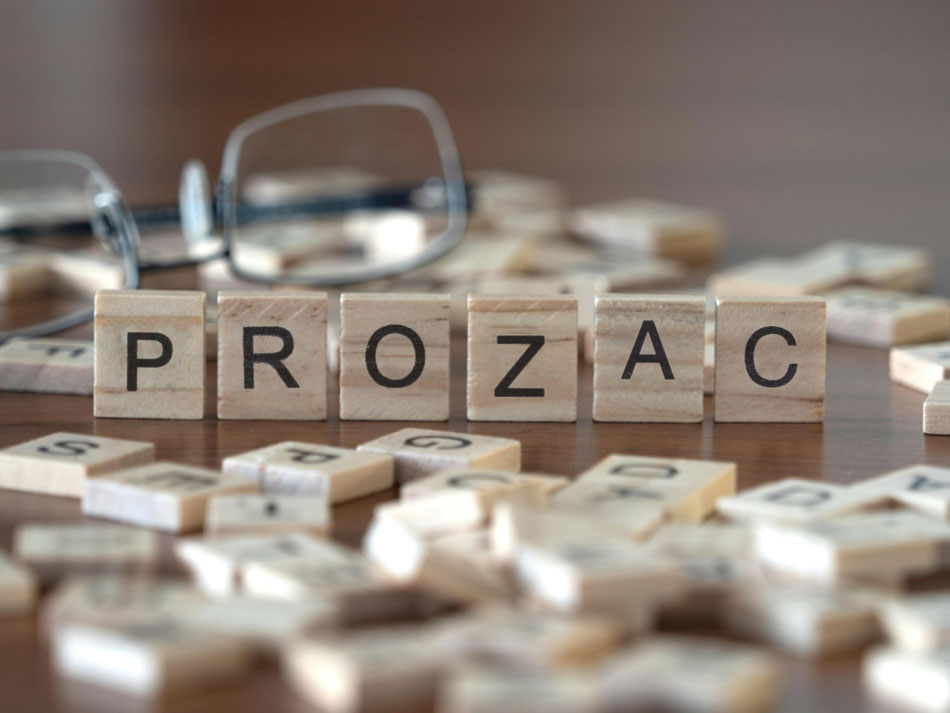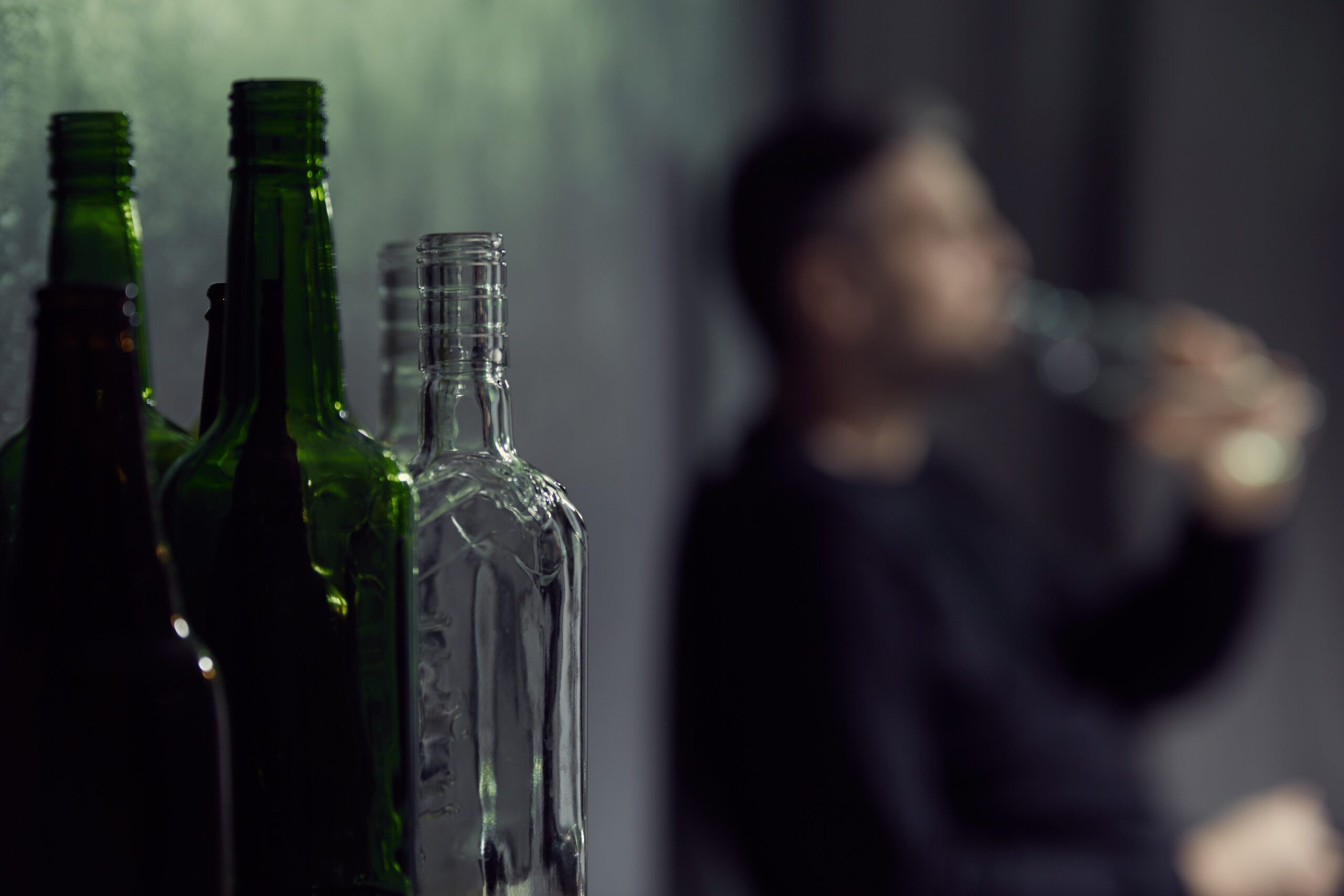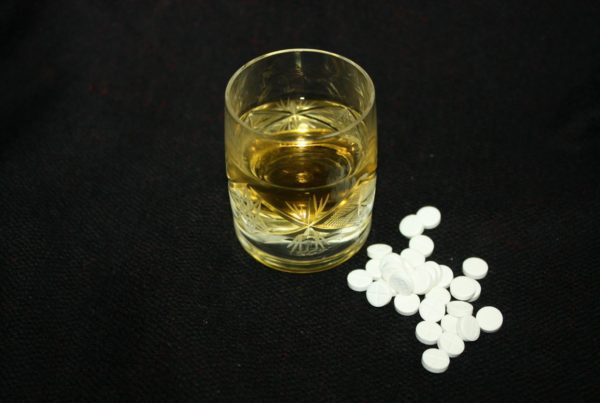
Table of Contents
Prozac and alcohol should never be taken together due to the chance of activating serious health risks. Those taking the antidepressant and mixing it with alcohol may experience increased sedation, confusion, irregular heart rate, and seizures, among other potential symptoms.
While an occasional glass of wine after dinner doesn’t necessarily qualify as an alcohol abuse, you may still be at increased risk for severe side effects when Prozac is still in your system. If you or a loved one are struggling to manage alcohol intake while also suffering from depression, professional treatment for co-occurring disorders may be the most effective solution.
Prozac Drug Facts
Prozac is a brand name for the active ingredient fluoxetine. This antidepressant medication is a selective serotonin reuptake inhibitor (SSRI) [1]. Fluoxetine comes in capsules, tablets, and a liquid substance that is typically taken once per day.
While it takes some time to experience the full benefits of the drug, patients have reported less anxiety and restlessness. When taken as prescribed, Prozac can increase the “feel good” signals or serotonin levels in the brain and is an effective treatment for those suffering from mood disorders, major depressive disorder [2], or depressive symptoms.
At this time, Prozac is not categorized as a controlled substance and is not reported to have physically addictive properties. In some cases, it can lead to experiencing physiological withdrawal symptoms if you stop taking it suddenly. Prozac is also prescribed to treat eating disorders, obsessive-compulsive disorder (OCD), and panic disorders.
What Are SSRIs and How Do They Work?
Normally, when the brain naturally produces serotonin, it is shortly re-absorbed, and the effects expire. Taking a selective serotonin reuptake inhibitor (SSRI) prevents the brain from absorbing the feel-good chemical and retains more serotonin for your body to use.
This extends the timeline of the positive effects of serotonin, and someone who is taking Prozac or another SSRI prescription experiences pleasant feelings. These effects are beneficial for managing the symptoms of various variety of challenging mental health conditions.
Side Effects Of Prozac
Aside from the benefits of taking Prozac, like experiencing reduced levels of anxiety, depression, and other panic disorder symptoms, there are a number of side effects associated with regular use. In most cases, symptoms are mild. However, there are many cases where symptoms may become more serious, and you should immediately consult a physician.
The most common side effects include the following:
- Drowsiness or sedative effects
- Sleep disruption
- Nausea
- Dizziness
- Diarrhea
- Heartburn
- Tremors
- Changes in eating habits and weight loss
- Sexual dysfunction
- Profuse sweating
- Chronic headache
- Dry mouth
- General weakness and impaired coordination
- Concentration and memory issues
 Effects Of Alcohol Use
Effects Of Alcohol Use
Alcoholic beverages contain ethanol, the substance that leads to intoxication. Immediate effects of intoxication include feelings of relaxation, temporary euphoric sensations, and a reduced level of natural inhibitions.
In larger amounts, alcohol or intoxication may lead to reckless or risky behavior, impaired judgment, depressive symptoms, and a lack of coordination. Short-term effects of excessive alcohol consumption include nausea, vomiting, and headaches. These symptoms are what’s commonly known as the hangover period.
Over a longer period of time, alcohol consumption can lead to physical and psychological dependence or addiction. At this stage, alcohol use may lead to avoidance of responsibilities, preoccupation with buying and consuming alcohol, and a negative impact on relationships, careers, and academic studies.
When consumed long-term, alcohol also leads to a variety of serious health conditions, such as weight gain (also known as “beer belly”), pancreatitis, liver disease, cancer, heart disease, digestive issues, neurological disorders, and various forms of sexual dysfunction.
What Happens When You Mix Prozac and Alcohol?
As mentioned above, a few of the side effects of Prozac use include dizziness, drowsiness, and reduced coordination. When consuming alcohol, some of these same side effects are also present. Consuming the two substances together will exacerbate these shared symptoms and increase their severity creating a dangerous combination.
Perhaps more concerning is the fact that combining alcohol with antidepressant SSRIs can decrease the effectiveness of the prescription in treating depression, anxiety, and panic disorders. Because alcohol can also increase depressive symptoms while simultaneously reducing the effectiveness of the antidepressant, mental health symptoms can intensify.
This puts those suffering from depressive or mood disorders at increased risk, potentially making their symptoms exponentially worse. Together, Prozac and alcohol can also take a significant toll on the liver. This increases the risk of liver damage and other long-term health concerns.
Side Effects of Prozac and Alcohol Together
There are many shared side effects and symptoms between Prozac and alcohol. taking them together can increase the risk and severity of each of them. When taking them together, you may experience any or all of the following:
Increased drowsiness
Increased dizziness
Severely impaired judgment
Mood swings and agitation
Suicidal thoughts
Digestive issues
Developing serotonin syndrome
What Is Serotonin Syndrome?
Serotonin syndrome [3] is a severe drug reaction that can be life-threatening. It is the result of an overproduction of serotonin in the brain and usually occurs when taking too many SSRI medications, mixing medications, mixing medications with alcohol, and mixing medications with other herbal or dietary supplements.
Increasing serotonin levels associated with serotonin syndrome can lead to mild symptoms like digestive issues and more concerning symptoms such as fever and seizures. If left unaddressed, chronic serotonin syndrome can be fatal.
Treatment For Co-Occurring Disorders
A co-occurring disorder or a dual diagnosis is present when someone suffers from both a mental health condition, such as depression or anxiety, as well as a substance use disorder. this could look like regularly mixing prescription drugs with alcohol or other harmful substances.
Treatment for co-occurring disorders requires a holistic, whole-person approach that incorporates both medication management and therapy interventions. In some cases, it may be necessary to enroll in a reputable and trusted detox program to manage early withdrawal symptoms.
After detox is complete, ongoing treatment includes participation in inpatient or residential treatment programs or partial hospitalization programs (PHP). A partial hospitalization program is an outpatient treatment program that offers daily therapy and support with the freedom to sleep at home.
In most cases, the next level of care is an intensive outpatient program (IOP) that still offers several hours of support and therapy a day with a more flexible weekly schedule. Once you or your loved one have gained a strong sense of personal autonomy but still values consistent support, an outpatient program may be a good fit.
An OP program offers the most flexibility in terms of scheduling with regular support as needed. This is the program that prepares you to restore daily routines and activities. When planning for long-term recovery, an individualized aftercare plan will be implemented to prevent relapse and provide emergency planning.
At Ocean Recovery, we understand the complexity of addiction and have assembled a highly qualified and compassionate team to oversee and facilitate each level of care and each therapeutic intervention. we’re here to support you now and prepare you for life.
Frequently Asked Questions About Prozac and Alcohol
Below, we’ve listed some of the most commonly asked questions about Prozac and Alcohol.
What happens if you drink alcohol while taking Prozac?
Can I skip a day of Prozac to drink?
How long do you have to be off of Prozac before drinking?
What should I avoid while taking Prozac?
Struggling With Prozac and Alcohol? We Can Help.
Battling and mental health disorder and a substance or alcohol use disorder can significantly complicate a safe recovery. At Ocean Recovery, we can help you safely navigate substance or alcohol use disorder without jeopardizing any underlying mental health conditions.
With holistic medication management and evidence-based therapeutic interventions, you can experience healing here. Contact us to begin your healing journey.
Sources
[1] Chu, A., Wadhwa, R. NCBI. (2023, February 12). Selective Serotonin Reuptake Inhibitors. Retrieved from https://www.ncbi.nlm.nih.gov/books/NBK554406 on 2023, March 24.[2] Bains, N., Abdijadid, S. NCBI. (2022, June 1) Major Depressive Disorder. Retrieved from https://www.ncbi.nlm.nih.gov/books/NBK559078/ on 2023, March 24.
[3] Simon, L., Keenaghan, M. NCBI. (2022, July 19) Serotonin Syndrome. Retrieved from https://www.ncbi.nlm.nih.gov/books/NBK482377/ on 2023, March 24.
OCEAN RECOVERY EDITORIAL GUIDELINES
The internet contains a vast amount of misinformation, but when it comes to your health only peer reviewed, research centered data matters. At Ocean Recovery, all content published throughout our website has been rigorously medically reviewed by a doctorate level clinician, and cross checked for medical accuracy. Our editorial process helps our readers trust that the information they are consuming is factual and based upon scientific data. Your health is our top priority, find out more about how we safeguard the integrity of information on our website. Read More About Our Process

 Effects Of Alcohol Use
Effects Of Alcohol Use


